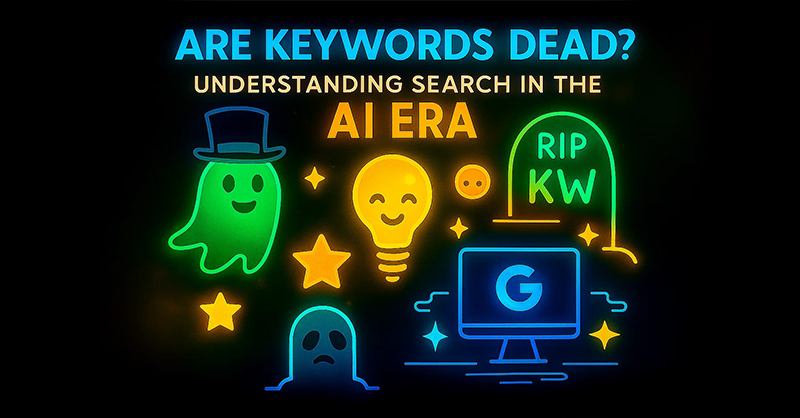How Search Evolved from Keywords to User Intent
When Google first became mainstream, it was a “strings not things” world. People typed in broken phrases like “best Italian restaurant Toronto cheap” and websites gamed the system by stuffing those exact words onto pages. Rankings had less to do with quality and more to do with repetition.
But search has matured. Over the last decade, several key shifts redefined how engines interpret language:
- Semantic search: Google started analyzing meaning, not just literal text.
- Voice search boom: Thanks to voice assistants, like Alexa, Siri, and Google Assistant, queries became more conversational.
- Mobile-first indexing: Search engines prioritized results that matched real-world, on-the-go language.
- AI-powered results: Tools like RankBrain, BERT, and MUM pushed understanding of context and nuance even further.
Today, voice search queries sound more like full questions: “Where can I get authentic Neapolitan pizza near me that delivers late?” The algorithm interprets intent (i.e. hungry, late night, authentic food instead of fixating on one rigid phrase).
This is where the “keywords are dead” myth often comes from. Exact matches aren’t everything anymore. But that doesn’t mean keywords disappeared; they just evolved into signals that guide how engines understand intent.

Source: Shutterstock
Why Keywords Are Still Important in 2025
Let’s get one thing straight: keywords still matter. They remain the bridge between what people are asking and how search engines interpret answers. The key difference is that they’re no longer the destination; they’re the starting point.
Keywords as Signals, Not Scripts
Once upon a time, SEO was about repeating a keyword until the algorithm noticed. Today, keywords work like clues. They tell you what your audience is curious about, but you don’t need to copy them word-for-word to rank. Search engines are smart enough to connect synonyms, variations, and context.
For example, if your target keyword is “mortgage broker Toronto,” you don’t need to force it 12 times on the page. Instead, content that naturally covers mortgage rates, refinancing, first-time buyers, and the Toronto housing market will perform better because it reflects the full search intent.
The Rise of Long-Tail and Question-Based Queries
AI tools like ChatGPT, Perplexity, and even Google’s own AI Overviews are training people to ask full, natural questions. Instead of “plumber Toronto,” a user might type: “Who’s the most reliable plumber near me that won’t overcharge?”
That means long-tail keywords, FAQs, and question-based content are more valuable than ever. Targeting conversational phrases helps your content get picked up not just by search engines, but also by generative AI summarizers.
Search Journeys, Not Single Keywords
Think about how people actually search. Rarely does one keyword equal one answer. Instead, users move through a journey:
- Awareness stage: “What is refinancing?”
- Consideration stage: “Is refinancing a good idea in 2025 Canada?”
- Decision stage: “Best mortgage broker Toronto for refinancing.”
Good SEO doesn’t just target one keyword; it maps an entire journey with multiple touchpoints.

Source: Shutterstock
The Impact of AI on Search and Keyword Strategy
Here’s where things get interesting. The rise of generative AI isn’t just changing how people search, but it’s also changing where they search.
Generative AI in Google Search
Google’s AI Overviews now summarize answers at the very top of search results, pulling content from multiple sources. Instead of clicking through ten blue links, users might get what they need instantly. For content creators, that means you’re competing not just for rankings, but for AI’s trust.
AI as a Search Alternative
A growing number of users skip Google altogether and head to tools like ChatGPT, Perplexity, or even TikTok for answers. These platforms rely on training data, user prompts, and natural language understanding. But here’s the catch: they still use the language people search with, which means keywords continue to shape discovery, often as users engage with them in a conversational AI mode.
Structured, Authoritative Content Wins
AI systems pull from sources they consider credible and structured. That means using clear headings, question-based subtopics, and authoritative context makes your content more “AI-friendly.” Keywords help signal relevance, but structured, authoritative content seals the deal.
Are Keywords Really Dead in SEO or Just Changing?
The short answer: no.
The longer answer: keywords are no longer the star of the show, but they’re the supporting cast instead. They won’t win you visibility on their own, but without them, your content risks being invisible.
Think of keywords as coordinates. They don’t represent the entire map, but without them, you can’t start the journey.
- Dead: keyword stuffing, exact matches, writing for bots instead of people.
- Alive: intent-driven keywords, long-tail questions, and keyword-informed content strategy.
The brands that win in the AI era will be the ones who:
- Listen closely to how their audience actually talks.
- Anticipate not just one keyword, but the full set of questions a user might ask.
- Write for people first, but structure content, so machines can parse it.
Practical SEO Strategies for the AI Era That Work
So, how do you adapt? Here are actionable steps for using keywords in a world dominated by AI-driven search:
1. Focus on Conversational Queries
Use tools like AnswerThePublic, AlsoAsked, or Google’s “People Also Ask” to uncover real questions people ask. Target those questions in H2 and H3 tags. When you align your content with user intent, you’ll be in a strong position to rank well once the new AI mode rolls out.
2. Map Keyword Clusters
Instead of chasing one keyword, build topic clusters. For example:
- Core keyword: “digital marketing strategy”
- Cluster keywords: “how to create a digital marketing strategy,” “digital marketing examples,” “digital marketing trends 2025.”
This helps you rank for a range of queries and aligns with how AI interprets context.
3. Optimize for Featured Snippets & AI Overviews
When it comes to getting your content shown as a featured snippet or in AI overview, write concise, direct answers to common questions in your content. Lists, tables, and step-by-step explanations make it easier for AI to pull from your content.
4. Don’t Ignore Traditional SEO
Site speed, mobile optimization, backlinks, and technical SEO still matter. Keywords alone won’t save you if your website underperforms.
The Truth About Keywords and Why Lazy SEO Fails
Keywords aren’t a magic bullet anymore, but they’ve never been more important as a compass. They guide intent, shape discovery, and help you align your content with what real people are searching for in real language.
The businesses and creators who adapt by treating keywords as signals, optimizing for questions, and writing content that feels human will continue to win visibility in both search and AI-driven platforms.
So no, keywords aren’t dead. What’s dead is the old-school, robotic version of SEO that treated people like algorithms. In 2025 and beyond, success belongs to those who write for humans first, but with a clear understanding of how machines interpret intent.
For the latest digital marketing news, check out our blog. To book an appointment, call 866-208-3095 or contact us here.






